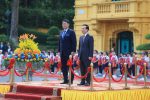THE STATE VISIT BY THE PRESIDENT OF MONGOLIA TO THE SOCIALIST REPUBLIC OF VIETNAM
President of Mongolia Ukhnaa Khurelsukh with his spouse Luvsandorj Bolortsetseg arrived in Hanoi on November 1, 2023, for a State Visit to the Socialist Republic of Vietnam at the invitation of President Vo Van Thuong.
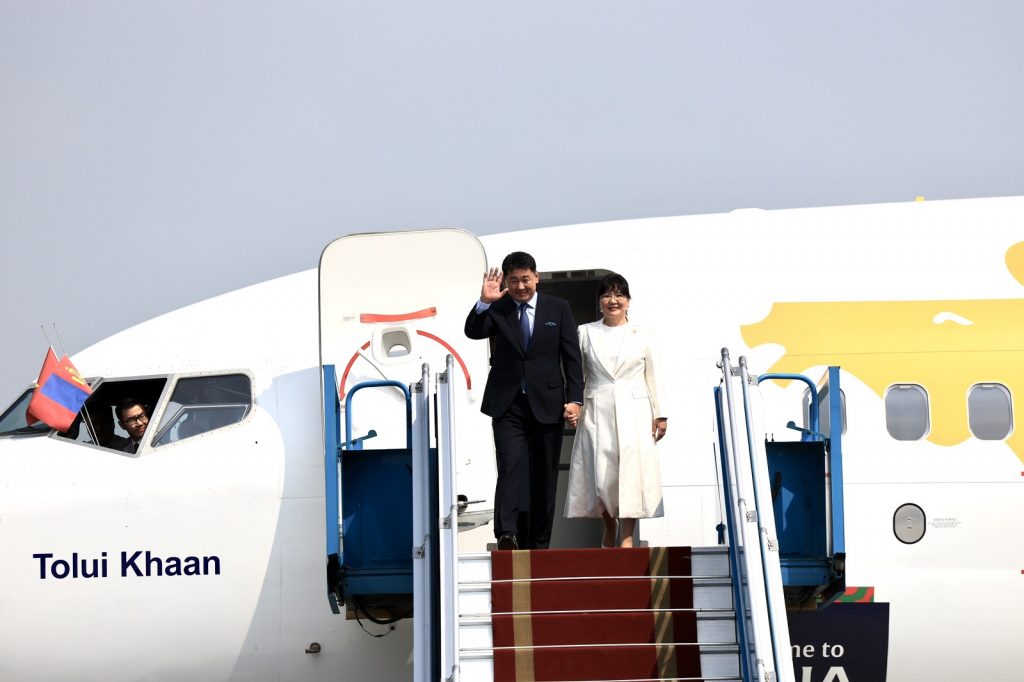
The President and his spouse laid a wreath at the Memorial to the Revolutionary Martyrs and paid tribute to the Ho Chi Minh Mausoleum on November 1.
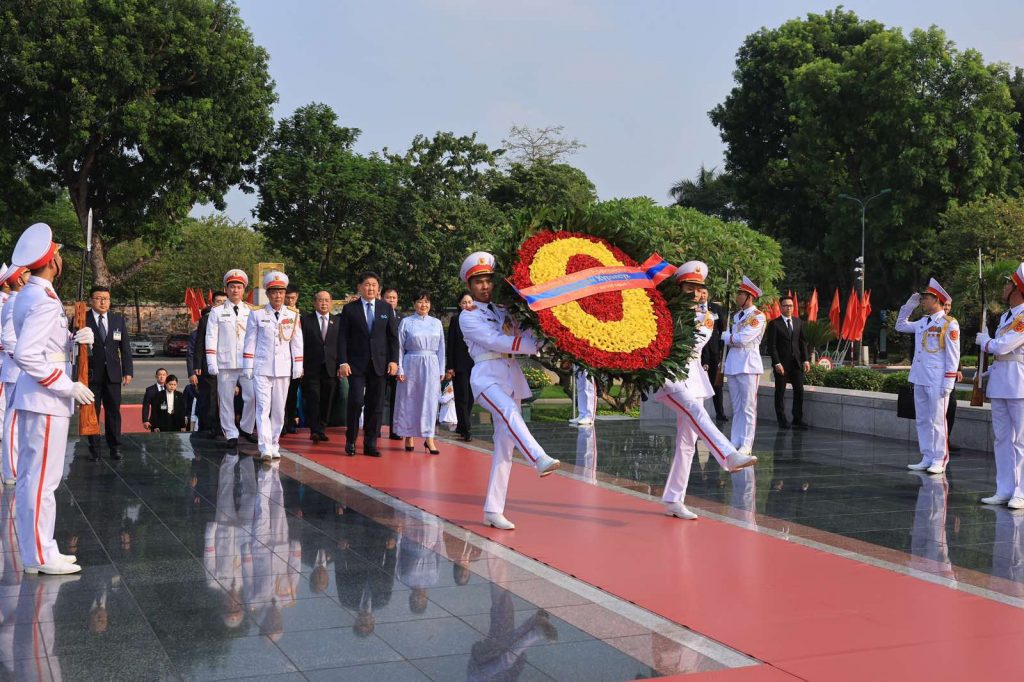
An official welcoming ceremony was held for President Khurelsukh following which the Heads of State held official talks.
During the official talks, which were held in a friendly and warm atmosphere, the two sides exchanged views on Mongolia-Vietnam relations and cooperation in the various fields, including politics, defense, transport logistics, agriculture, education, culture, and tourism, as well as bilateral cooperation on regional and international issues. President Khurelsukh thanked the Vietnamese state, government, and people for their warm welcome and hospitality to the Mongolian delegation.
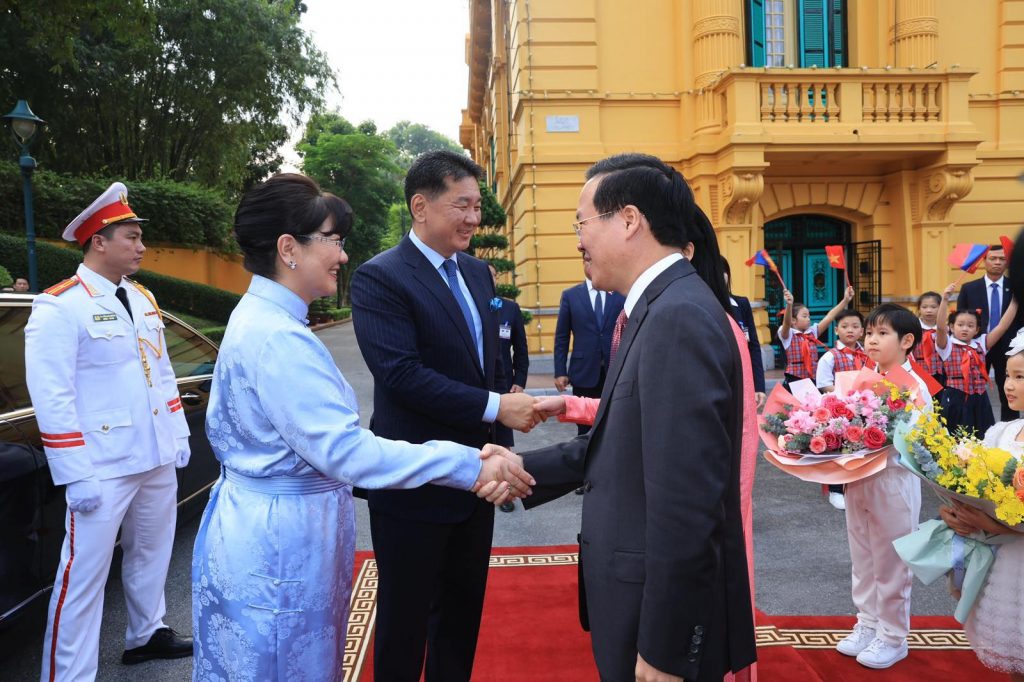
Noting that the traditional friendly relations between Mongolia and Vietnam, which have ancient historical roots, have expanded and strengthened based on the Principle of Friendship and Cooperation, President Khurelsukh expressed commitment to developing bilateral cooperation with concrete economic content, leveraging the features and resources of relations between the two countries.
The two sides emphasized that the Mongolian President’s State Visit to the Socialist Republic of Vietnam is a crucial catalyst for strengthening people-to-people ties, setting the direction for further cooperation, and determining the prospects for fostering traditional friendly relations between the two countries in the future.
President Vo Van Thuong thanked President Khurelsukh for the cordial invitation to pay a State Visit to Mongolia in 2024 as part of the celebration of the 70th anniversary of diplomatic relations between Mongolia and Vietnam.
In connection with the 70th anniversary of diplomatic relations, the two sides agreed to host joint arts and cultural events and to actively cooperate in upgrading the traditional friendly relations between Mongolia and Vietnam to a “Comprehensive Partnership.”
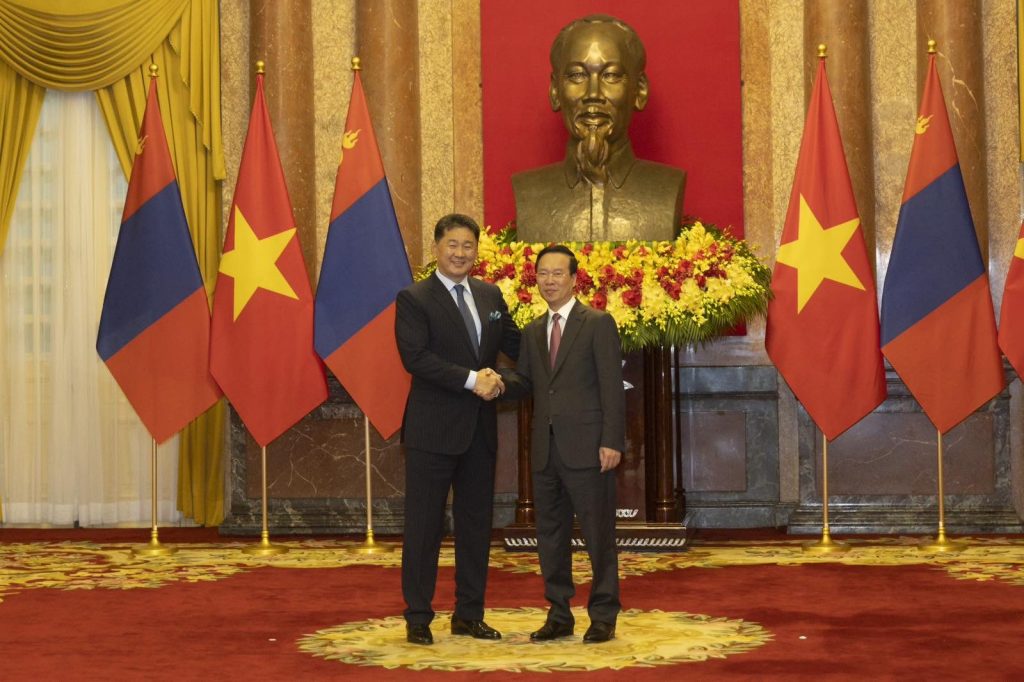
To deepen mutually beneficial cooperation in trade and economy, the two sides agreed to expand aviation relations, develop passenger and freight transport through direct flights, foster tourism cooperation, and increase people-to-people exchanges.
The two parties noted that the “Agreement between the Government of Mongolia and the Government of the Socialist Republic of Vietnam on Exemption from Visa Requirements for Holders of Diplomatic, Official and Ordinary Passports,” signed during the State Visit, would play a vital role in boosting the flow of citizen travel between the two countries and promoting tourism development.
The two Heads of State noted that agricultural and light industry products make up most of the trade turnover between the two countries and highlighted the significance of the “Memorandum of Understanding on Sustainable Rice Trading,” signed by the Ministry of Food, Agriculture, and Light Industry of Mongolia and the Ministry of Industry and Trade of Vietnam, in further improving the quality of rice imported from Vietnam to Mongolia and ensuring trade stability of the two countries.

The two sides concurred that the Model International Veterinary Certificate for the Export of Sheep and Goat Meat from Mongolia to Vietnam would make a concrete contribution to expanding food, agriculture, trade, and economic cooperation between the two countries.
The two sides emphasized the importance of forging ties between entrepreneurs, entities, and small and medium-sized enterprises of the two countries and supporting their cooperation at the state policy level. The Heads of State also commended the organization of the Mongolian-Vietnamese Business Forum in Hanoi city.
President Khurelsukh and President Vo Van Thuong highlighted the ample opportunities to cooperate in mining, energy, railway, and maritime between the two countries. The two Heads of State pledged to collaborate on exploring opportunities to export Mongolian coking and thermal coal and other mining products to Vietnam and to secure the mutual supply of agricultural products such as leather and hide.
President Khurelsukh said that Mongolia is implementing the “Billion Trees” and “Food Supply and Security” National Campaigns to mitigate the adverse impacts of climate change and ensure global food security and discussed the possibility of cooperating with Vietnam in this area.
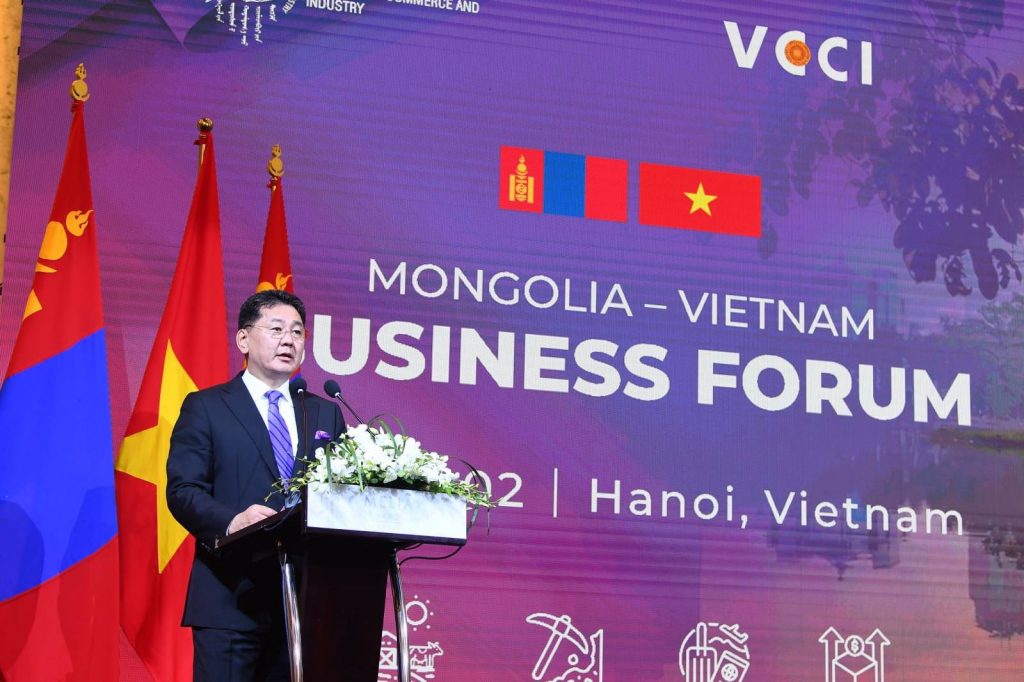
The Presidents of Mongolia and Vietnam emphasized the two countries’ active cooperation within the United Nations, ASEAN, and other international organizations. President Vo Van Thuong affirmed Vietnam’s commitment to supporting Mongolia’s bid to join the Asia-Pacific Economic Cooperation (APEC).
As a result of the official talks, Mongolia and Vietnam issued a Joint Statement and signed several cooperation documents to strengthen the legal basis between the two countries.
During the State Visit, Chairman of the National Assembly Vuong Dinh Hue, Prime Minister Pham Minh Chinh, and General Secretary of the Communist Party of Vietnam Central Committee Nguyen Phu Trong paid courtesy calls on the President of Mongolia.

President Khurelsukh also attended the Mongolia-Vietnam Business Forum. In his opening speech, President Khurelsukh emphasized the opportunities to expand trade and economic cooperation between the two countries into all areas, including food, agriculture, mining, road transport, energy, the environment, and tourism.
President Khurelsukh expressed confidence that enriching cooperation between citizens of Mongolia and Vietnam, which have historically friendly relations, with new content would make a significant contribution to developing economic cooperation between the two countries.
The President also expressed his readiness to support the private sector’s cooperation in exporting meat and meat products from Mongolia to Vietnam, and in applying advanced Vietnamese technologies to the processing of sheep, goat, cow, and horse hides, which are Mongolia’s livestock raw material resources.

